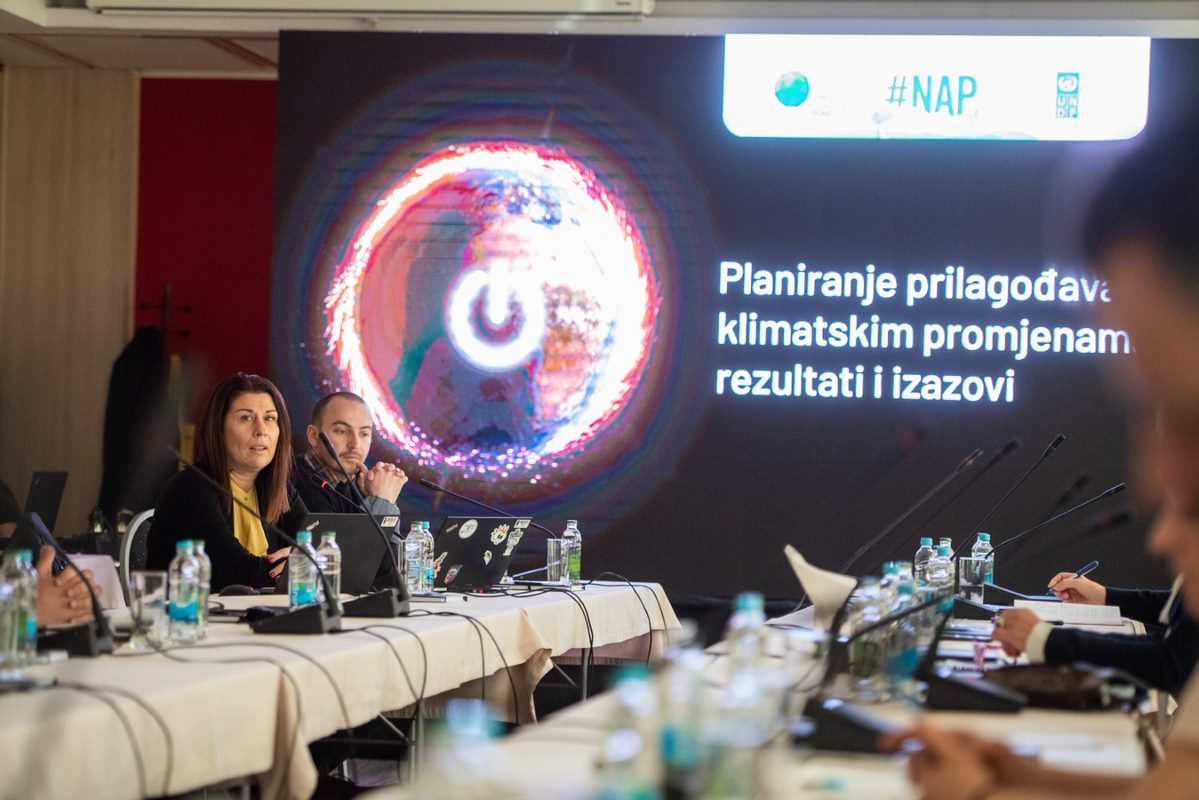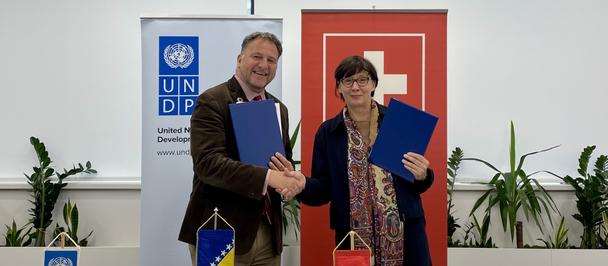Project “Advancing the National Adaptation Plan process in BiH"
BiH finalized the first Climate Change Adaptation Plan
December 30, 2022

Bosnia and Herzegovina is one of 41 countries in the world, and the second in the Western Balkans, which has finalized and submitted its Climate Change National Adaptation Plan (NAP) to the United Nations Framework Convention on Climate Change (UNFCCC) that was officially published on 21 December 2022 at https://napcentral.org/submitted-naps.
This document is the result of long and intensive work and coordination of more than 1,300 representatives of institutions at all levels of government in the country, with the support of the United Nations Development Programme in BiH (UNDP) within the project “Advancing the National Adaptation Plan process in BiH" financed by Green Climate Fund (GCF).
The Council of Ministers of BiH adopted this important document at the session held on 26 October 2022, and previously it was supported by the Government of Republika Srpska, the relevant ministries of the Federation of BiH and by the Brčko District of BiH, thus showing readiness to advance planning of adaptation to climate change in the country, with the aim of reducing negative climate consequences on all aspects of the environment and economy.
NAP is a comprehensive document that was prepared on the recommendation and in accordance with the guidelines of the UNFCCC, which provides an analysis and assessment of vulnerability and risk from climate change, and defines specific activities and measures for adapting to climate scenarios.
In addition to a pressure on countries to reduce their greenhouse gas emissions before it is too late to keep global warming below 1.5 degrees Celsius, there is a growing need to increase climate change adaptation measures, especially in countries most vulnerable to extreme weather events.
Changes in climate patterns and behavior represent a growing challenge for humanity, and in the last few years in BiH this has caused extreme climate phenomena, such as heavy rainfall, hail, devastating floods, extremely high temperatures, droughts, heat waves and stormy winds. It is already clear that they endanger human lives and cause significant material and financial damage, and that it is therefore extremely important to work on improving climate change adaptation planning.
This Plan contains an analysis of the current regulatory framework and technical studies in BiH, climate change trends, future climate projections, an overview of the impact of climate change by sector, and proposals for medium-term measures to reduce the negative consequences of climate change on the most vulnerable sectors, including agriculture, water and forest resources, biodiversity and tourism.
The NAP process in BiH aims to improve existing reporting on climate trends and the development and implementation of adaptation measures and to contribute to the integration of climate change adaptation into relevant social, economic and environmental policies and actions. With this aim, the project, in cooperation with the institutions of BiH, developed Standard Operating Procedures (SOP) for horizontal and vertical institutional cooperation on the exchange of climate data, as well as an appropriate framework for monitoring and evaluation, as part of the NAP document, which will enable regular updating of the NAP.
--------------------------
The NAP process was created by the Conference of the Parties (COP 16) in 2010 to enable least developed countries and other developing countries to formulate and implement NAPs as a means of identifying medium- and long-term adaptation needs and developing and implementing strategies and programmes to address those needs.
It is important that this strategic process establishes the systems and capacities needed to make adaptation an integral part of the country's development planning, decision-making and budgeting, while ensuring that it is an ongoing practice and not a separate ad hoc exercise.
NAPs also help countries meet their obligations under the Paris Agreement and the goals of the 2030 Agenda for Sustainable Development.
Bosnia and Herzegovina ratified the UNFCCC Convention in 2000, the most important international agreement in the field of environmental protection. After ratification, BiH took a series of steps to establish the appropriate political, institutional and legal frameworks in order to fulfill the obligations from the Convention. The contact institution of Bosnia and Herzegovina according to the UNFCCC is the RS Ministry of Spatial Planning, Construction and Ecology.

 Locations
Locations



